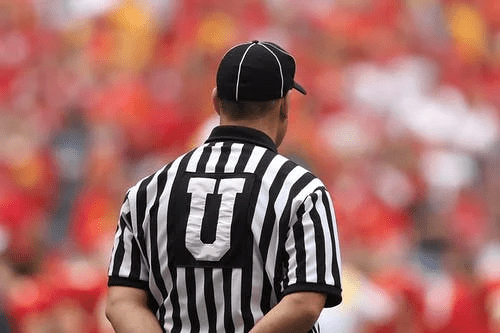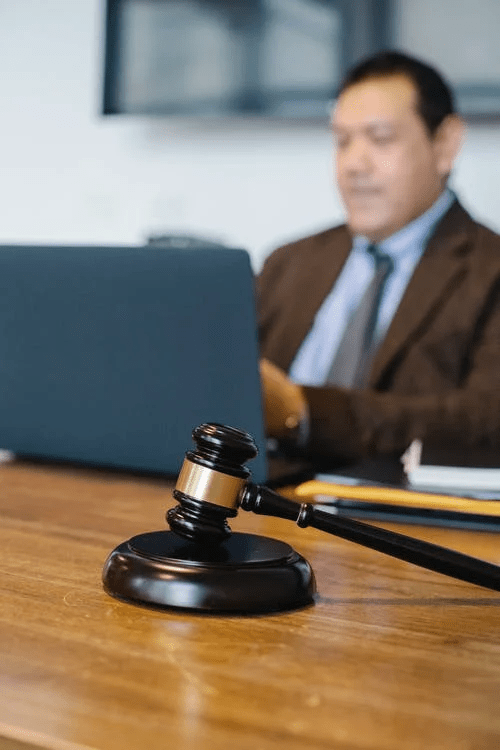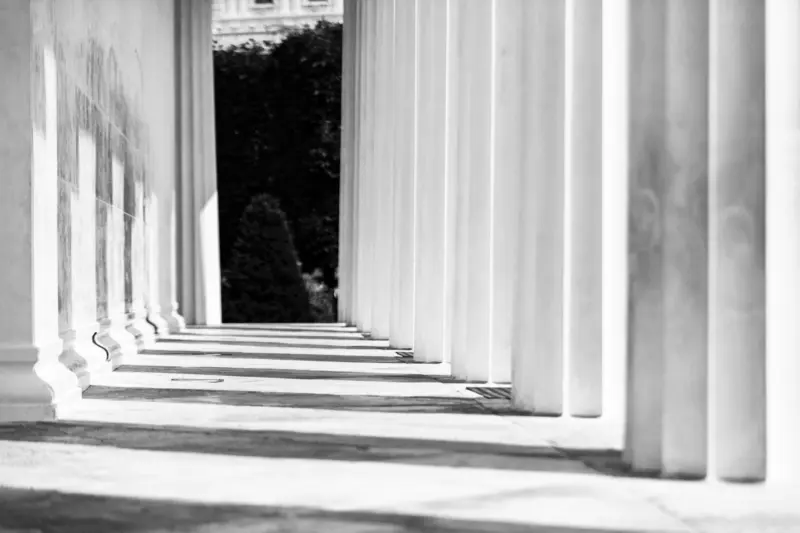How Can Independence of the DCF Fair Hearing Office Change Your Life?
Why does the Independence of the MA DCF Fair Hearing Office Matter?
Each sport has specific guidelines and rules of conduct that their referees and officials must follow, so why should the MA DCF fair hearing process be any different?
For every sport, there are one or more officials who makes sure the games are fair. Volleyball, soccer, hockey, and football all have rules and regulations that officials must enforce at every game. Without the rules and impartiality of the officials in enforcing them, players, spectators and fans would all lose respect in the game.
The same is true for Massachusetts Department of Children and Families (MA DCF) and the DCF Fair Hearing office. People who request a DCF fair hearing deserve the same, if not more, impartiality that an official would have in a sports game. Fair hearing officers should be held to higher standards than officials of sports games are because of the serious nature of DCF cases.
Even though the system is flawed, the public’s perception, which is reality, should be that the DCF Fair Hearing is a hearing that is fair. Understanding the intricacies of the DCF appeal process can significantly impact this perception. It’s essential for individuals involved to know their rights and the procedures that guide these hearings to ensure a fair and just outcome.
What Standards and Rules Does the MIAA Hold Their Officials To?
The Massachusetts Interscholastic Athletic Association has rules and codes of conduct that their officials must follow. The officials are responsible for the public’s confidence in the league, so they have an important role. The officials must be free from any other obligation than to be fair and impartial in their judgements during the games. They should be masters of the rules of hockey. They also must recognize that anything which may lead to a conflict of interest, Anything, either real or apparent, must be avoided.
Gifts, favors, special treatment, privileges, employment or a personal relationship with a school or team, can all compromise the perceived impartiality of officiating and must be avoided. Accordingly, they must not gamble on any event with any involvement in their work. Officials must also resist every temptation and outside pressure to use one’s position as an official to benefit oneself. Any bias or partiality would ruin the integrity of the sport and the game being played.
What Standards and Rules Does the MLB Hold Their Officials to?
Major League Baseball (MLB) Umpires should be focused on every pitch of the game and display concentration, confidence, and a professional appearance on the field. They are required to keep the game under control and not exacerbate a situation. Just like the families affected by the Massachusetts Department of Children and Families, every situation in baseball is unique and discretion by a game official is an essential part of the job.
However, the MLB asks that umpires strive for uniformity and a code of conduct. Umpires are heavily influential in the game and must sort out complex situations without fear of making an unpopular decision. Umpires should make every decision based on the facts presented, not the past history the umpire may have with the parties involved.
How should Referees Officiate a Football Game?

All high school officials must be knowledgeable of the appropriate MIAA general rules and regulations, as well as those rules governing the sport(s) which he/she is officiating (MIAA handbook 92.14). They are hired as contractors by the schools. The main job of all officials on the field is to regulate the conduct of the players, and ensure fair play, and sportsmanship. They are supposed to be objective judges that abide by standards set forth by the Massachusetts Interscholastic Athletic Association.
Officials must maintain complete impartiality with respect to all players at all times and must avoid any real or perceived conflicts of interest. They must be experts of the game and regulate the game as fairly as possible. They should be respectful to all players and coaches involved in the game and issue conduct warnings as necessary.
In all sports, officials are to consider taunting a flagrant unsportsmanlike offense that disqualifies the offending bench personnel or contestant from that contest/day of competition. (MIAA Handbook 48.3)
Which Standards and Rules Does the NHL Hold Their Officials to?
According to the agreement between the NHL and the NHLOA (National Hockey League Officials Association), officials can only be compensated by the agreement they make with the NHL, which is an impartial League that oversees the teams. Individual teams do not pay officials; the NHL pays them.
Officials can not accept compensation or anything of value from any third party. They are also not allowed to participate in any gambling activities related to the NHL, whether official or not. NHL officials are expected to be impartial, honest, and fair.
They cannot have any bias towards either team which can affect their judgement. They also go through extensive training programs that ensure they are fully aware of the rule and regulations and make decisions and calls based on the rules, not on their own bias or feelings.
During any given game, there are 4 officials, 2 referees and 2 linesmen. These officials have a lot of power to represent the fairness of the league in the public’s eye and must be fair, diligent, and impartial in order to protect the integrity of the sport.
What are the Standards and Rules for USA Volleyball Officials?
In volleyball, there are at least three officials: one net official and two-line judges. The net official (a.k.a. the first referee), makes calls on anything that happens at the net. They also decide who gets the points at each rally. Line judges call whether the ball lands in or out of the court. Most of the time in tournaments, the net official is unaffiliated with either team. Line judging is a role that can be taken on by teams that are not currently in play.
According to USA volleyball, the first referee has authority over all members of the team and other referees. They hold the power to overrule the decisions of involved parties, and they are the ones to make the final decisions. They may also reject another referee, or in our analogy an employee of DCF, if they fail to perform their functions properly.

According to MA DCF, What is the Purpose of the Fair Hearing Process?
Pursuant to 110 CMR 10.01, the Department strives to equitably and fairly provide service to clients. Clients have the opportunity to appeal certain matters via a Fair Hearing Process. These matters include things such as supported decisions of abuse or neglect. The Fair Hearing is an appeals process for caretakers who are unsatisfied with DCF’s actions and decisions.
Which Roles and Duties Does the MA DCF Hearing Officer Have?
Pursuant to 110 CMR 10.03, MA DCF Fair Hearing Officers are employed by the Department. The Hearing Officer’s only role and duty is to serve as a “judge” at Fair Hearings throughout Massachusetts. If the Hearing Officer does have personal involvement, however, they must tell the Director of Fair Hearings and recuse themselves from the matter.
Are Judges Held to Impartiality Standards?

The Massachusetts Code of Judicial Conduct follows the Code of Judicial Conduct. Supreme Judicial Court Rule 3:09, establishes the standards for the ethical conduct of all judges across the United States.
Supreme Judicial Court Rule 3:09 states “Judges should maintain the dignity of judicial office at all times and avoid both impropriety* and the appearance of impropriety* in their professional and personal lives. They should aspire at all times to conduct that ensures the greatest possible public confidence in their independence,* impartiality,* integrity,* and competence” (Supreme Judicial Court Rule 3:09 [2]).
In other words, judges must always be impartial. In fact, judges cannot legally act in a way that undermines their impartiality.It should be noted that “impropriety” is “conduct that violates the law”. This would include behavior that undermines the judge’s independence, and also the judge’s integrity,* or impartiality.*” (Supreme Judicial Court Rule 3:09, Terminology).
If Mr. Robert Craft and Bill Bellicheck were paying the referees on a game day at Gillette, would you trust the referee? Would it ensure a fair game? You would have no trust or belief in the system. If you want the government to be trusted again and looked upon as fair, things cannot stay the same.
How Fair is a Fair Hearing?
Under 110 CMR 10.01, the DCF Fair Hearing is supposed to help families receive a just and fair decision from an impartial hearing officer. It should be based on the facts and applicable policies, regulations, statutes and/or case law. But because the Fair Hearing is not independent of DCF, DCF’s decision is therefore judged by DCF.
That is not “fair” at all. The DCF Fair Hearing Office is inside the DCF central building where DCF social workers and supervisors are daily. So, DCF employees are constantly surrounding fair hearing officers.
How fair can a fair hearing officer be when they spend the majority of their time around members of DCF, then? Moreover, to become a Fair Hearing Officer, you must have three years of full time professional experience as a licensed social worker or child protective worker. So how “fair” can the hearing be if the officer who oversees the hearing is also a former employee of DCF?
Do DCF Fair Hearings Continuously Fail to Recognize the Truth?
In 2018, a social worker accompanied a teenager from Boston Children’s Hospital (BCH) to a group home. Five days later, workers found needles under the teenager’s bed.
The social worker told DCF she had checked the teenager’s bag. She had not seen any needles when they left the hospital. Child Welfare Expert, Patricia Brady, was a member of the social worker’s legal team. DCF threw out Brady’s findings during the Fair Hearing because it did not match their narrative. They stated the reason for doing that were typos in Brady’s report.
Brady stated that DCF had contradicting evidence regarding where they found the needles. Brady believed that the DCF investigation was so unfair that she emailed DCF. DCF responded that there was no concrete evidence that the social worker was the one responsible. BCH also has not reported anything about missing needles in the last 5 years.
DCF has repeatedly supported motions against the social worker in this matter, even though all the evidence pointed somewhere else. Not only was the social worker watching the teenager, but so was the BCH staff. This social worker experienced a massive injustice by DCF, raising concerns about parents rights against dcf
All in all, If we were to replicate this judging model into the DCF Fair Hearing process, the system may actually bring more fairness. Consider DCF investigators to be a line judge: is the ball in or out of the court? There should be a complete separation between DCF and the fair hearing process.
DISCLAIMER
You find yourself in this situation, it’s advisable to seek legal representation from a qualified attorney, like those at the Law Office of Kevin Seaver, who can advocate for your rights and guide you through the complex process of a DCF investigation.
Remember that the ultimate goal of DCF is to ensure the safety and well-being of children while supporting families in crisis.
Please note that this article does not create an Attorney-Client relationship between our law firm and the reader and is provided for informational purposes only. Information in this article does not apply to all readers.
Readers should not rely on this information as legal advice and should seek specific counsel from the attorney based on personal circumstances. Thank you.
Kevin Patrick Seaver is a Massachusetts DCF Defense Lawyer who represents parents against false child abuse allegations.

Massachusetts DCF Defense Lawyer Kevin Seaver has been successfully fighting false child abuse allegations since 1991.

